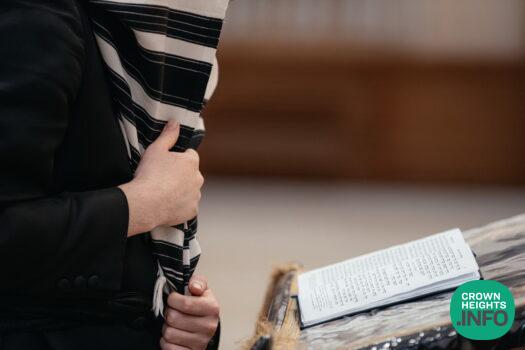
Weekly Dvar Torah: Finding Hope and Strength In the Power of Prayer
In the annals of my memory, resides the tale of Lag Baomer 1967. At the tender age of ten, I stood amidst the trembling echoes of history, a witness to the palpable fear that gripped the hearts of my neighbors—the survivors of the Holocaust.
Lag Baomer unfolded against a backdrop of impending doom. The world was ablaze with news of 23 Arab countries declaring war on the fledgling nation of Israel, vowing to extinguish the flame of Jewish existence once and for all. As the whispers of war grew louder, the memories of past atrocities resurfaced with a chilling clarity.
Twenty years had barely elapsed since the horrors of Hitler’s regime, the wounds still festered raw. The numbers tattooed onto the arms of the survivors served as indelible reminders of the unspeakable horrors endured in the depths of Auschwitz and Bergen-Belsen. The mere thought of another genocide, another march towards the abyss of annihilation, sent shivers down our spines.
The streets of Crown Heights echoed with the cries of anguish as Jews wept openly, their hearts heavy with the burden of impending doom. In our synagogues, the air was thick with the scent of desperation as we were praying fervently for deliverance from the abyss.
Amidst the chaos and despair, a beacon of hope emerged in the form of the Lubavitcher Rebbe. His unwavering faith and resolute confidence in the Almighty infused our souls with a renewed sense of security. While foreign governments issued their ominous decrees of evacuation, urging all their citizens to flee the impending storm, the Rebbe’s voice rang out with clarity and conviction to stay put.
I recall the impact upon the scene at Toras Emes, a Yeshiva only 30 yards from the border with Jordan, where a group of foreign students sought guidance from the Rebbe in the face of imminent danger. With steely resolve, the Rebbe instructed them to remain in Yeshiva steadfast in their studies, assuring them that the merit of their Torah learning would serve as a shield against the looming threat.
On that momentous Sunday, Lag Baomer, which fell on May 28, 1967, a mere nine days before the war started, the Rebbe spoke to us, his children, declaring that our brothers and sisters in Eretz Yisrael were under the special protection of the Almighty. It was a proclamation that echoed through the chambers of our hearts, infusing us with a renewed sense of faith and determination.
Local Jewish and Israeli media clamored for the recording of the Rebbe’s prophetic words, eager to disseminate his message of assurance and confidence to the masses. Newspapers printed transcripts of his speech, spreading the flame of hope far and wide, igniting the spirits of a nation on the brink of despair.
While others prepared for the worst, envisioning tens of thousands of graves for their brethren, the Rebbe’s prophecy of total victory for the Jewish state and its people pierced through the veil of despair, offering a glimmer of hope in a world shrouded in uncertainty.
The world watched in awe as Israel, against all odds, emerged victorious. In just six days, they defied the expectations of the world, defeating their enemies with a ferocity and determination that could only be described as miraculous. The land that had once trembled under the specter of annihilation now stood as a testament to the power of faith and resilience.
Fast forward to Yud Tes Kislev 5744, November 24, 1983, and the Rebbe’s voice once again pierced through the clamor of uncertainty. In the face of escalating tensions and geopolitical upheaval, the Rebbe urged us to increase our prayers for peace and unity, offering us a pathway through the darkness guided by the light of Torah and prayer.
The Rebbe said: “To combat the increasing state of instability in the world, Jews should increase in their prayers to G d, prayers which express the ideas of Ahavas Yisroel and peace in the world.”
“The suggested additions are:
“(i) As a preface to the morning prayer, before מה טבו (“Mah Tovu”), to say הַרֵינִי מְקַבֵּל עָלַי מִצְוַת עַשֵׂה שֶׁל וְאָהַבְתָּ לְרֵעַךָ כָּמוֹךָ — “I hereby take upon myself to fulfill the mitzvah, ‘Love your fellow as yourself.’“
“(ii) At the conclusion of prayers, after the verses אל תירא (“Al Tirah”), עצו עצה (“Utzu Eitzah”) and ועד זקנה (“V’ad Ziknah”), to say the verse, אַךְ צַדִיקִים יוֹדוּ לִשְׁמֶךָ יֵשְׁבוּ יְשָׁרִים אֶת פָּנֶיךָ —”Indeed, the righteous will extol Your Name; the upright will dwell in Your presence.”
The Rebbe lamented a troubling trend wherein the Israeli government, under pressure from external forces, was being compelled to sign documents in the name of peace. Instead of leveraging Israel’s superior position to eliminate terrorist threats and protect Jewish lives, they found themselves capitulating to world opinion at the expense of their own people.
With palpable anguish in his voice, the Rebbe issued a poignant admonition: “If you have no Jewish pride, and your image in the eyes of the world is more important than Jewish life, go home and let others do the job.” His words resonated with a clarity that transcended time, serving as a sobering reminder of the enduring struggle between pragmatism and principle.
As I reflect on the Rebbe’s words, I cannot help but draw parallels to the present day. The echoes of his admonition reverberate through the corridors of history, reminding us that despite the passage of time, the challenges we face remain unchanged. It is a call to action, a summons to confront the moral quandaries of our time with courage and conviction.
And so, as we navigate the uncertain terrain of the present, let us take heed of his words, embracing the prayer about the mitzvah of loving our fellow as ourselves and offering prayers for peace in a world yearning for redemption.
Have a Rejuvenated Sense of Prayer of a Shabbos,
Gut Shabbos
Rabbi Yosef Katzman













